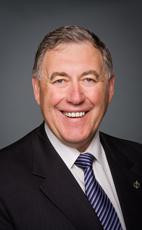Mr. Speaker, this week we learned that the leader of the Liberal Party insulted women across this country and across all party lines with an invitation to a women only event in Toronto. Sadly, the invitation implies that women are only concerned with pressing issues, such as their favourite virtues. Well, how demeaning.
Personally, as the father of three daughters, I can say that all members on this side of the House believe every issue and all issues are women's issues.
Could the Minister of Status of Women update the House on our government's actions to create jobs for not only women but all Canadians?

